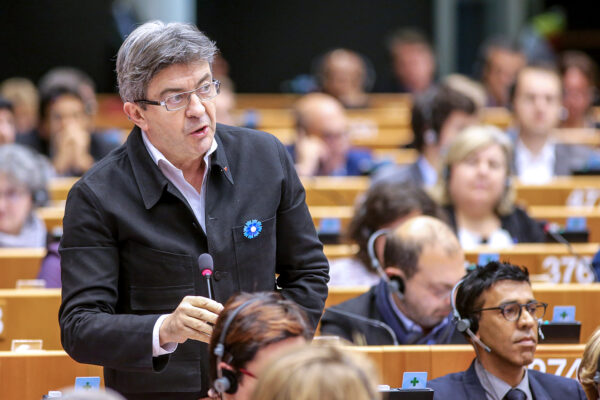
Supporters of the far-left presidential candidate in France, Jean-Luc Mélenchon, are about to make the same mistake as some of Bernie Sanders’ supporters when they sat out the most recent election in the United States.
Of those who backed Mélenchon in the first voting round last month, only 29 percent intend to support Emmanuel Macron, the center-left candidate who defeated him, a survey has found.
Another 36 percent claim they will spoil their ballots while 29 percent plan to not vote at all.
Enthusiasm
Over 450,000 Mélenchon supporters were polled but only 243,000 responded, as a result of which the findings may not be representative. The other 200,000 may, halfheartedly, vote for Macron and millions more leftists with them.
But low enthusiasm for Macron is nevertheless disconcerting when the voters who support his opponent, Marine Le Pen, are among the most committed and likely to turn out.
Macron got 8.6 million votes in the first round, or 24 percent. Le Pen placed second with a million fewer votes, or 21 percent. Mélenchon and the center-right Republican candidate, François Fillon, shared third place with just over seven million votes each.
Some of Fillon’s conservative supporters will switch to Le Pen, whom polls give up to 40 percent support for the second voting round this weekend.
No survey has ever put Le Pen in the lead, but that does assume the bulk of Mélenchon’s supporters show up and help elect Macron.
Different views
Few of Mélenchon’s voters should wish for a Le Pen presidency.
The two share some views. Both are Euroskeptic, if for different reasons: Mélenchon sees the European Union as a neoliberal project that puts the interests of companies over workers; Le Pen considers it an affront to French sovereignty.
The two are also apologetic of Russian president Vladimir Putin and they both oppose NATO.
But on social issues, they could hardly be farther apart.
Mélenchon argues for a more generous immigration policy. Le Pen wants to admit no more than 10,000 immigrants per year — down from 200,000 in recent years — and eliminate birthright citizenship.
Mélenchon has proposed to legalize marijuana and lift the ban on medically assisted procreation for gay couples. Le Pen opposes both.
Mélenchon wants to phase out nuclear power. Le Pen considers nuclear a form of sustainable energy.
Cautionary tale
For leftists, then, a Macron victory would be preferable. His environmental and social policies are closer to Mélenchon’s than they are to Le Pen’s.
Mélenchon himself has stopped short of endorsing the former banker, but he has spoken out against Le Pen.
The only thing Mélenchon’s voters would achieve by spoiling their ballots or staying home is making it possible for the National Front to win.
Their ideological counterparts in the United States know this all too well.
Close to 100,000 votes for the Green Party candidate, Ralph Nader, in the 2000 election enabled the right-wing George W. Bush to eke out a victory in Florida and thus the nation.
Something similar happened last year. Support for the Green Party candidate, Jill Stein, combined with non-voting by supporters of Bernie Sanders may have made the difference in states like Michigan, Pennsylvania and Wisconsin, where mere tens of thousands of votes separated Hillary Clinton from Donald Trump.
It is impossible to say if left-wing purists cost Clinton the election, but they certainly didn’t help. By staying home, or voting for the hopeless Stein, they made it easier for Trump to prevail.
Let’s hope the French left doesn’t repeat that mistake. One illiberal nationalist in charge of a Western democracy is more than enough.
